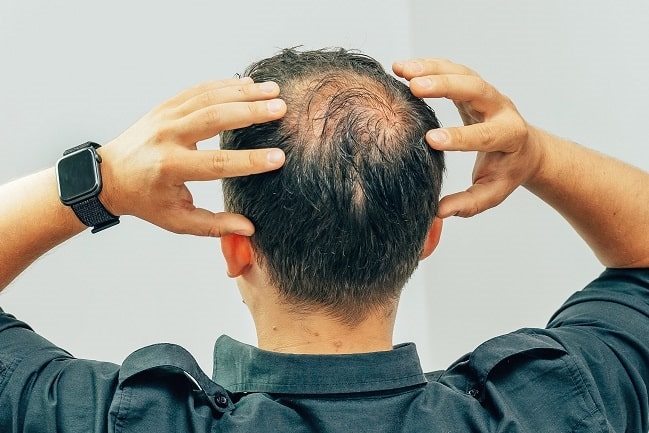1
HOME > Health & Fitness >
HOW DANGEROUS IS TOO MUCH TESTOSTERONE FOR MEN?
Written by Menswear Style in Health & Fitness on the 2nd July 2021

The media has flooded articles and advertisements about testosterone replacement therapy. Most patients are confusing it as an anti-ageing therapy with no credible source whatsoever. The following are some of the anticipated results of the procedure:
- Low body fat
- Increased muscle size
- Increased bone density
- Decreased body pains
- Increased sex drive
As a result, the treatment has gained popularity by considering the benefits, men have turned a blind eye to the possible side effects. Most medical procedures lead to complications, thus crucial to consider the negative outcome. With most drugs coming with side effects, the testosterone procedure is also risky. Weighing the benefits and the side effects can help determine its worth. A clear picture of how excess testosterone can be destructive is also understood. Most people also tend to confuse the testosterone procedure with the use of steroids. Specialised physicians carefully track the procedure since it's a medical treatment. The monitoring ensures proper levels of the hormone in the blood. In case of a higher amount, side effects are bound to happen. Physicians may also advise you to taper off testosterone dosage in order to successfully reduce potential side effects. The correct dosage and regular monitoring during treatment are beneficial for patients. However, these are the side effects of too much testosterone in the body:
Hormonal Imbalance
Incorrect dosage in the procedure may lead to excess testosterone in the blood. As a result, the body experiences a hormonal imbalance. The body then reacts by turning the free testosterone into estrogen. Estrogen is crucial in the male's body to some extent. However, an increased amount of the hormone can lead to undesirable changes. These changes include:
- High blood pressure
- Breast sensitivity
- Enlarged breasts
- Frequent mood swings
- Edema/accumulation of excess body fluid
To avoid such a scenario, seek professional physicians to help with the procedure. Estrogen inhibitors are also great when dealing with increased estrogen levels.

Increased DHT Levels
Dihydrotestosterone (DHT) is a common male sex hormone. Increased levels of the hormone result from excess testosterone in the blood. As a result, the skin may become oily and produce acne. These skin conditions are usually mild and don't affect most people. Monitoring your dosages can limit and prevent these skin conditions. Many medical options also exist to deal with oily skin. Some cases of male pattern balding are also attributes of high DHT levels. Hair loss happens gradually and later disappears.
Prostate Cancer
Excess testosterone has also led to beliefs of increased prostate cancer cases. Although, some scientists still find it a topic of discussion. It has been widely accepted among the masses and is thought to contribute to prostate growth. The Prostate-Specific Antigen (PSA) has, however, refuted the belief. Extensive research data is showing no relationship between the two variables of concern. The research has also refuted the effect of the procedure on the following:
- Urination flow rates
- Enlarged prostate size
- Increased prostate tumours
The long-term effects are, however, limited due to insufficient research evidence. As a result, it leaves room to be sceptical about the belief. A history of prostate cancer in your family makes you vulnerable to this treatment. They are advised to seek alternative methods or altogether avoid the treatment.

Decreased Size Of The Testicles
Increased levels of testosterone can affect your testicular size. The body senses increased levels of the hormone then alerts the brain. It assumes that the testicles are responsible for the excess production. As a result, the brain reacts by reducing the production of the Luteinizing hormone. This hormone handles stimulating the testicles to produce testosterone. With the absence of the Luteinizing hormone, the testicles decrease in volume and firmness. As a result, one experiences a decrease in testicles.
Increase In Red Blood Cells
When the levels of testosterone in the blood increase, red blood cell mass also increases. The hemoglobin levels also rise as a result. It is crucial to consider this effect, especially in older men. Increased levels of red blood cells cause conditions that may affect a male’s health. These conditions include:
- Heart attacks
- Stoke
- Blood clotting
High percentages of the red blood cells in the blood can be fatal. As a result, one can opt to get a blood transfusion. It can reduce the concentration of red blood cells in the blood. One can also opt to reduce the testosterone dosage. This dosage reduction can lead to lowered red blood cells and the accompanying risks. When undertaking testosterone therapy, always make sure to track your hematocrit levels.
Trending
2
3
4
5
6
7
8
9
10









